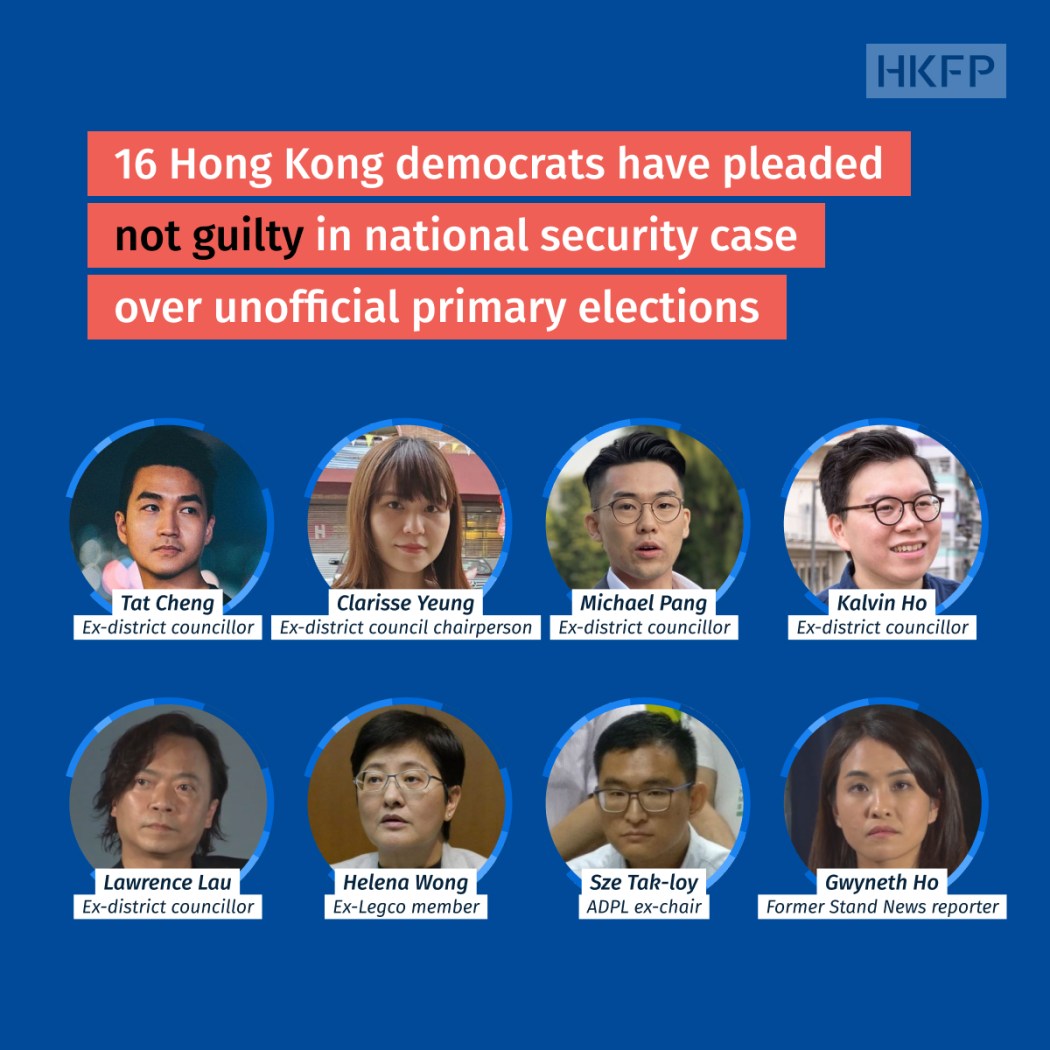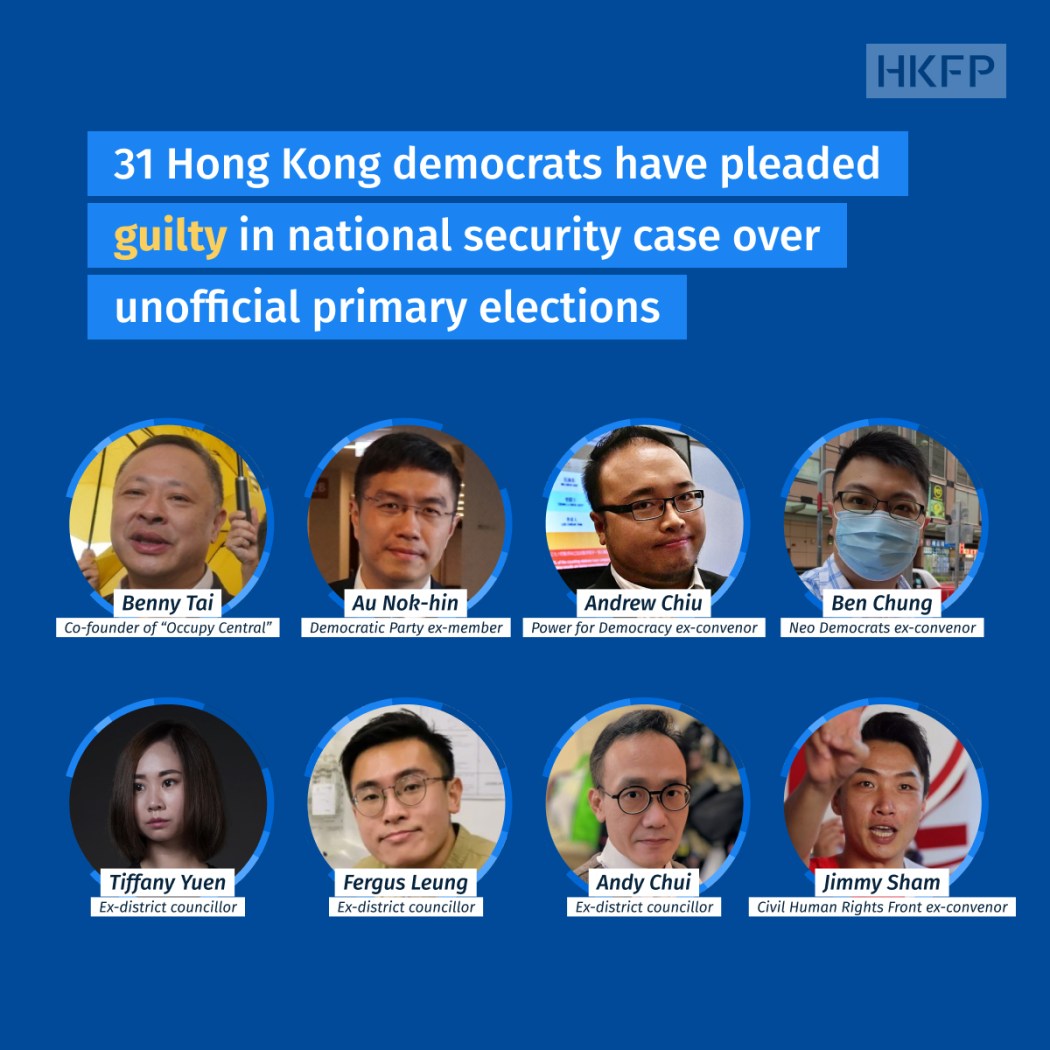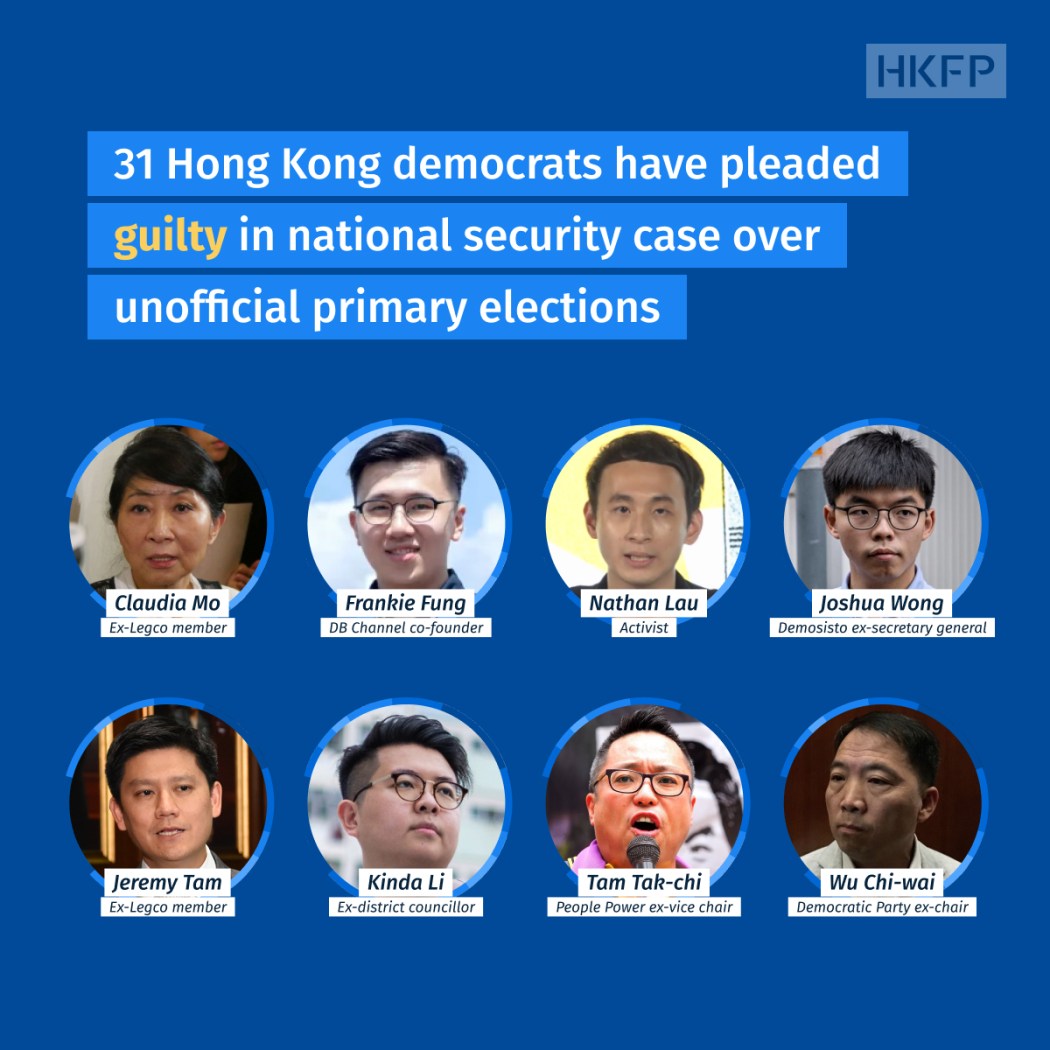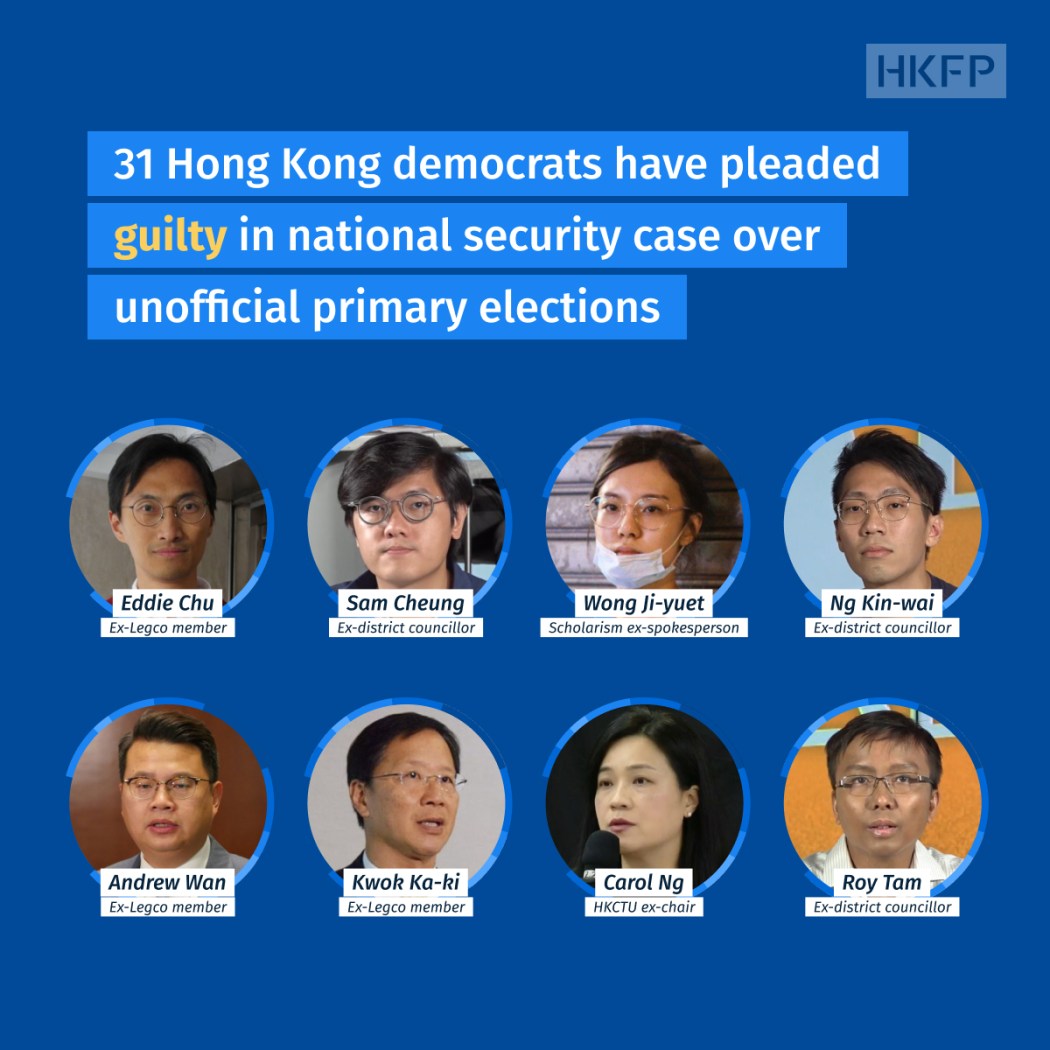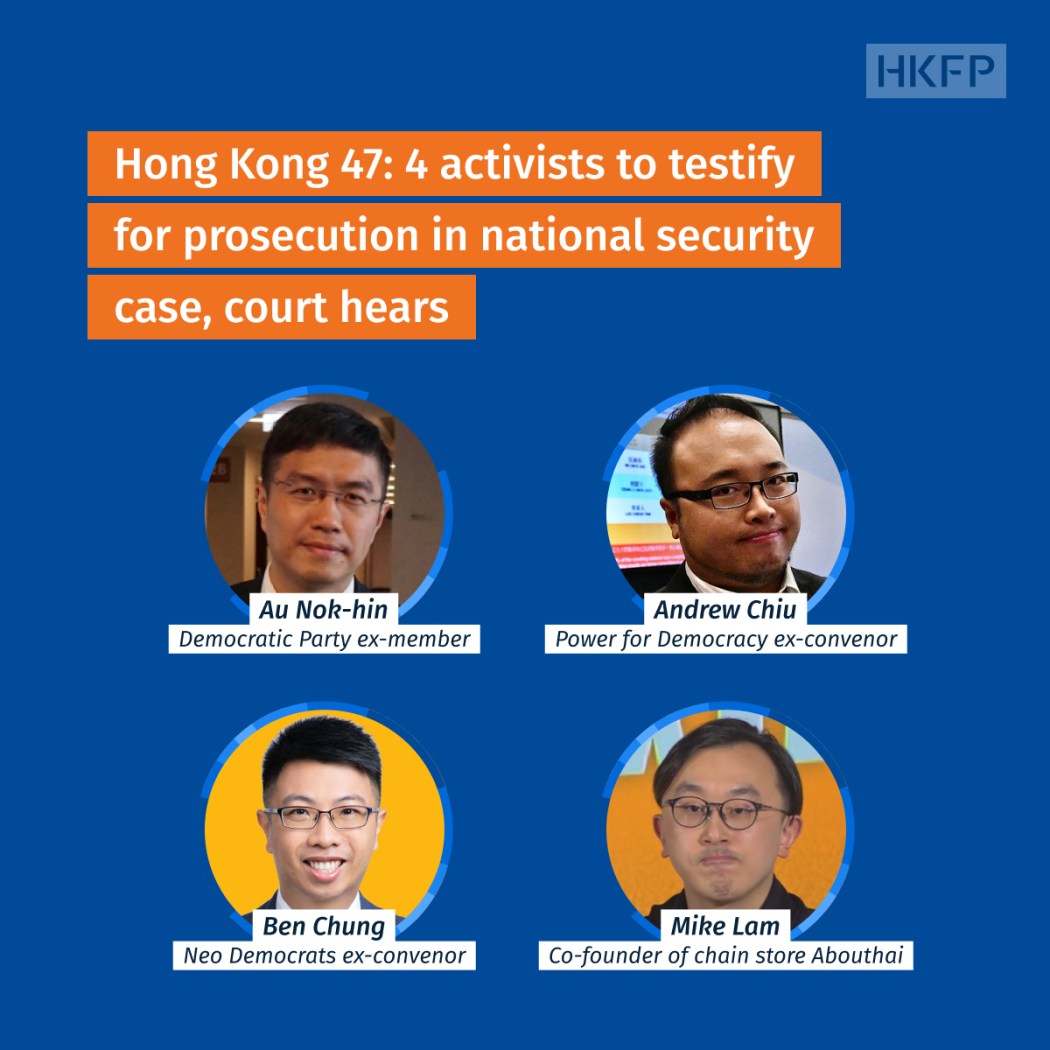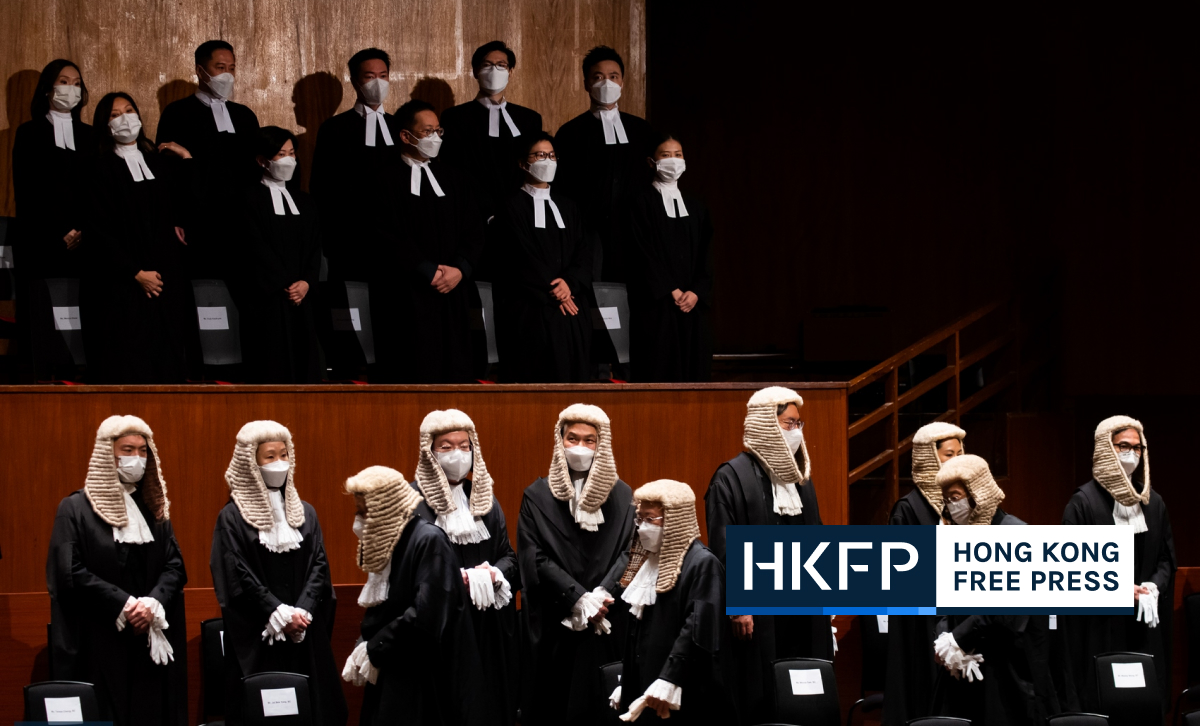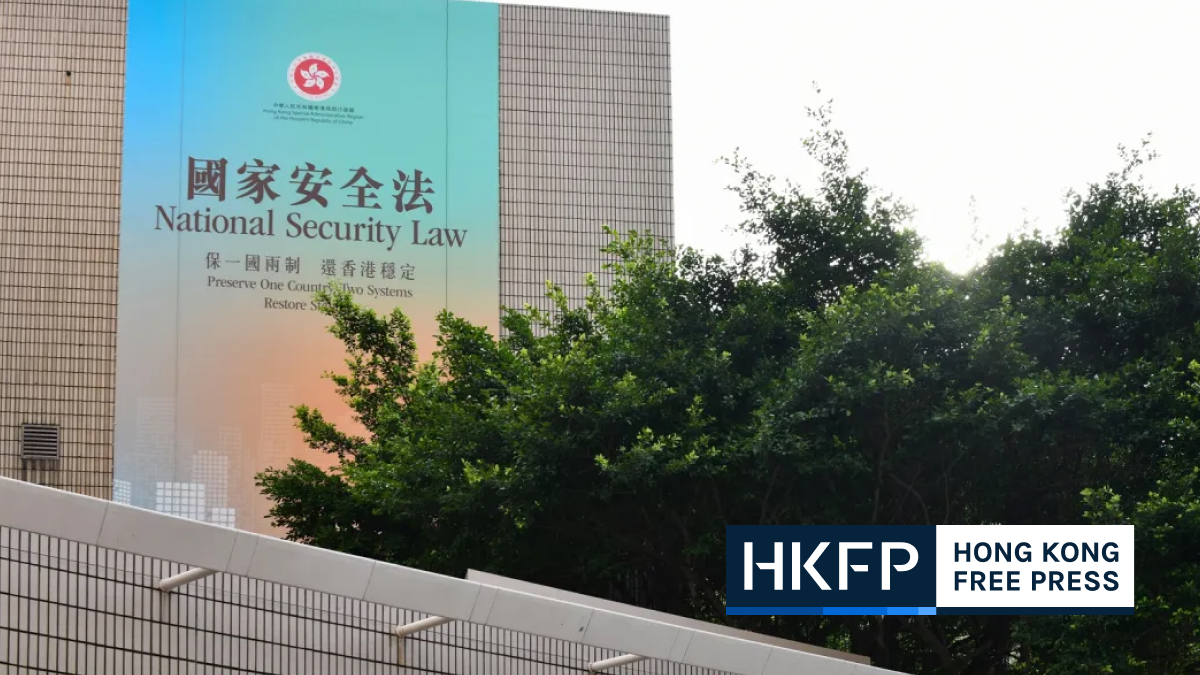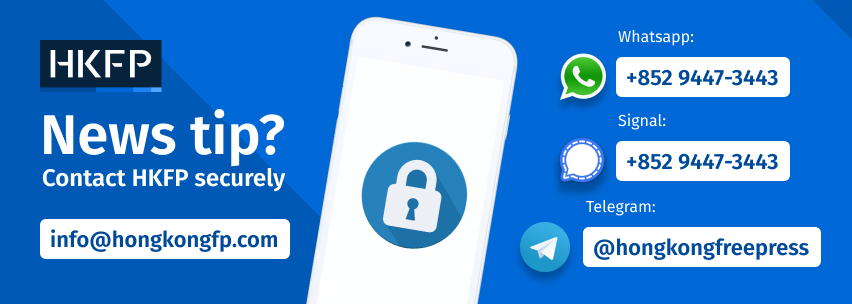The former chairperson of a pro-democracy medics’ union has said that she would have voted down government bills “by default” if she had been elected to the legislature, in Hong Kong’s national security trial.

Wearing the same clothes as the previous day, a black top and a brown cardigan, Winnie Yu testified for the second day on Thursday. Yu, who is on remand, smiled and made gestures, including a rock hand sign, as she walked past the public gallery to her seat.
Yu is one of 47 democrats charged with conspiracy to commit subversion linked to an unofficial legislative primary election held three years ago. Prosecutors have alleged that the defendants intended to abuse their powers if elected as lawmakers to indiscriminately vote down government bills and paralyse government operations.
As a nurse, the former chairperson of the Hospital Authority Employees Alliance ran in the primaries’ healthcare category.
Defence barrister Randy Shek continued his examination of Yu on Thursday morning. When asked whether – if elected as a lawmaker – she would have consulted her supporters on how to vote on government bills, Yu said she would have.
She added, however, that she would have used her constitutional powers to veto all government bills.
“But even though I said while campaigning that I would vote down all bills, that does not mean I would not have looked at their content,” Yu said in Cantonese.
She continued: “I would have looked into malpractices in the policies and done a close analysis for voters and the public to see. That is, I would have told everybody that… I had strong reasons to cast an opposition vote.”
The majority of the 47 defendants charged in the high-profile national security have been detained for over two years. Yu was initially refused bail in March 2021, when the activists were charged, but was granted bail that July before being re-arrested and taken into custody last March. A judge said she had violated bail conditions.
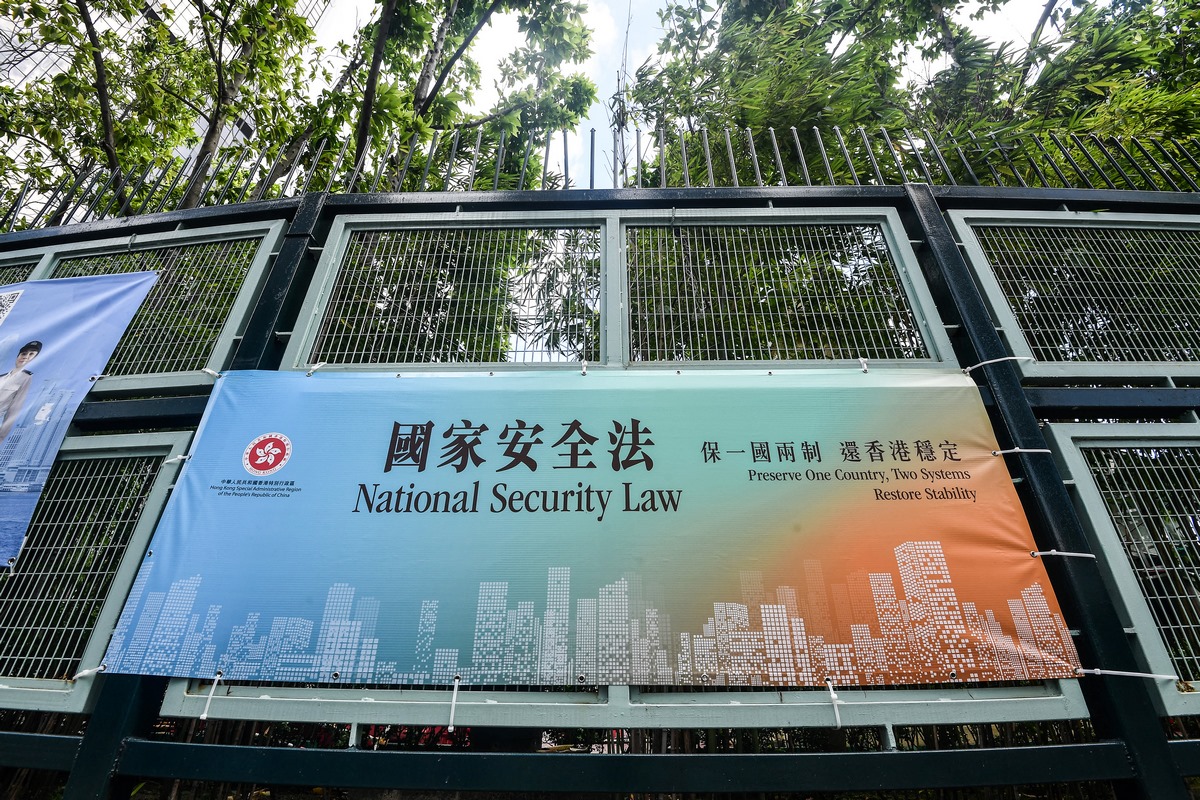
The trial is taking place before three hand-picked national security judges. The defendants face up to life in prison in convicted.
‘International front’
Thursday marked the 113th day of the national security trial, which was initially estimated to last 90 days. Yu is the last of the 16 defendants who pleaded not guilty to take to the stand.
During Thursday’s proceedings, Shek questioned Yu over a Chinese-language opinion piece she had posted on Facebook in May 2020 about Beijing’s announcement that it would impose a national security law in Hong Kong. The piece, titled, “In the mist, a clarion call sounds in the dark night,” was also published in local media outlet InMedia.
When asked what led Yu to write the piece, the defendant said she wanted Hong Kong people to not fear the security law, but to think of ways they could legally resist.

Shek highlighted one of the lines, “Faced with the blatant aggression of the Chinese Communist Party, the people of Hong Kong can only fight back with all their might. Every front must persist and continue their efforts.”
Judge Alex Lee asked: “In order to have a battle, you need to have an opponent. So who was the opponent?”
Yu said that in that context, it was “the government, the government which refused to listen to the public.”
Her barrister then moved onto another paragraph in which Yu mentioned an “international front.” Yu said she meant that she wanted the international community to pay attention to the political situation in Hong Kong.
Shek asked if she had wanted foreign countries to impose sanctions on Hong Kong.

“I have never made any statements calling for foreign sanctions,” Yu replied, adding that she simply wanted the Hong Kong government to feel pressured.
When asked later if she had made changes to her political platform after the security law was enforced, she said she removed mentions of “international front” from her leaflets.
“Even if I wasn’t calling for foreign sanctions, it could be seen as colluding with foreign forces,” she said.
Yu will continue her testimony on Friday.
In June 2020, Beijing inserted national security legislation directly into Hong Kong’s mini-constitution – bypassing the local legislature – following a year of pro-democracy protests and unrest. It criminalised subversion, secession, collusion with foreign forces and terrorist acts, which were broadly defined to include disruption to transport and other infrastructure.
The move gave police sweeping new powers, alarming democrats, civil society groups and trade partners, as such laws have been used broadly to silence and punish dissidents in China. However, the authorities say it has restored stability and peace to the city.
Support HKFP | Policies & Ethics | Error/typo? | Contact Us | Newsletter | Transparency & Annual Report | Apps

